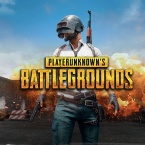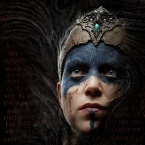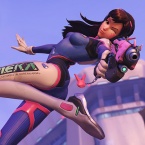If you're not familiar with the Sonic Cycle, I'm going to give you a brief rundown of this concept.
In short, Sega announces a brand new Sonic game. Gamers and journalists go: 'Huh, this doesn't look that bad. Actually, it might be okay'.
Over the coming months and as we see more of the game, we start to be apprehensive. There's gameplay that looks okay, but ultimately pretty janky, but we tell ourselves: 'No, this time will be different – the game isn't out yet, of course it's going to look a bit messy'.
But ultimately, the game comes out, isn't nearly as polished as we'd like and ultimately peaks between 60 and 70 on Metacritic.
This year, two Sonic games hit shelves. There was the 3D Sonic Forces, made by Sonic Team at Sega, which sadly appears to have obeyed this law. But another, the 2D Sonic Mania, appears to have defied the laws of physics that surround the franchise.
Announced last year at the Sonic 25th Anniversary event the title was unveiled in a very charming and sincere trailer (below) that very much screamed 'We know things haven't been great, and we're trying to figure out where to go from here'.
This wasn't being made by Sonic Team, however, rather than Taxman, Headcannon and PagodaWest.
You're forgiven for now knowing who these names are because they aren't big shot developers. Taxman is one Christian White, while Headcannon is Stealth aka Simon Thomley.
The duo is not 'professional' game developers, but rather hail from the fan community. Having developed their skillset making Sonic fan projects, they teamed up to rework Sonic CD for iPhone in 2011 for Sega, before going on to develop the original Sonic and its sequel for Apple's mobile device.
The game launched in August and was a combination of levels from the original 2D Sonic games, stages that took elements and made them into something, while one-third of the 12-level game were brand new creations. That's more – the game was received pretty well, even by people (myself) who weren't massively into Sonic. Its Metacritic score currently averages out in the mid-80s, compared to Sonic Force's, which range from 57 to 64.
We have now reached a stage where modders and ROM hackers, people who you normally hear about in news stories about DMCA strikes, cease and desist orders and lawsuits, are actually competent enough to make games that are better than those released by professional developers.
Sega isn't the only company realising this fact either. After his fan game, Another Metroid 2 Remake, was shut down by Nintendo last year, Milton Guasti found himself being hired by Moon Studios, the team behind the Ori and the Blind Forest, to work on follow-up, The Will of the Wisps.
Too often, big companies view these fan projects as infringing on their IP, which, yes, they are. But rather than shutting down these teams, isn't it better to not waste this knowledge and instead bring it in-house to make your games better?
Despite its lack of luck with the 3D Sonic games, as seen in Forces, Mania shows a refreshing amount of foresight from Sega, and I wouldn't be surprised to see Whitehead and HeadCanon be given greater freedom with the Sonic IP in the future. Assuming that bridge hasn't been burnt by the – um – interesting launch of Sonic Mania in PC.








